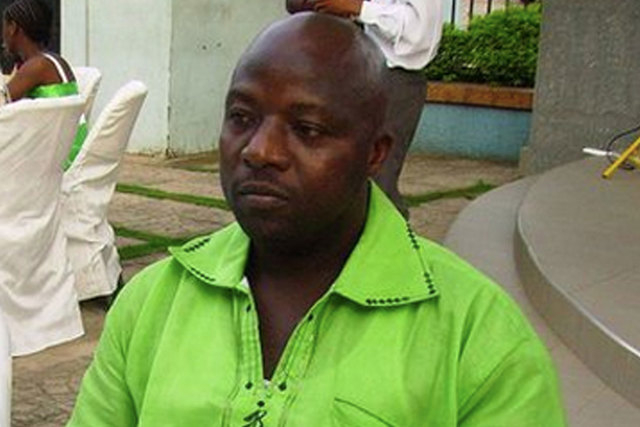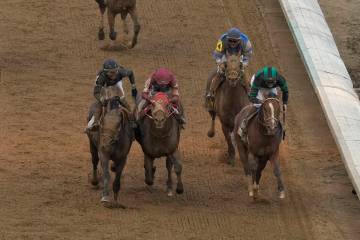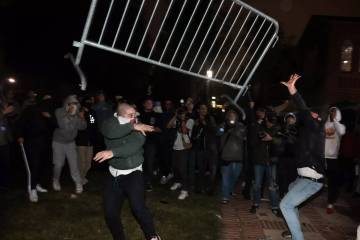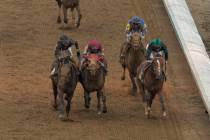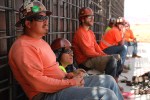1st Ebola patient diagnosed in US dies
DALLAS — The first person diagnosed with Ebola in the United States died on Wednesday and the government ordered five airports screen passengers from West Africa for fever, underscoring concerns about U.S. treatment and preparedness for the virus.
The administration of President Barack Obama has been under pressure from lawmakers to enhance screening and even ban flights after Liberian national Thomas Eric Duncan flew to Dallas, Texas, in late September after having contact with a woman who later died of Ebola. Duncan died on Wednesday morning in an isolation ward of a Dallas hospital.
U.S. Centers for Disease Control and Prevention (CDC) Director Dr. Thomas Frieden told a news conference that authorities are “stepping up protection and we’ll evaluate the measures.”
Authorities will use a non-invasive device to take the temperature of passengers and have them fill out a questionnaire created by the CDC asking for detailed information about their activities.
Duncan had been in critical condition and on a ventilator in an isolation ward at Texas Health Presbyterian in Dallas. He was also given an experimental medication to try to keep him alive.
Questions have been raised on what impact a decision by the hospital to initially discharge Duncan had on his treatment. In animal tests of experimental Ebola drugs, the chance of survival drops the longer it takes to begin treatment.
“You can have the best drug in the world and there is a point where that drug just won’t work,” said virologist Thomas Geisbert of the University of Texas Medical Branch, who has done pioneering work on Ebola treatments.
“There is a point where the virus has done so much damage you can’t recover from it,” Geisbert said.
NO SYMPTOMS
Duncan was able to fly to the United States from Liberia’s capital Monrovia because he did not have a fever when screened at the airport and filled out a questionnaire saying he had not been in contact with anyone infected with Ebola. Liberian officials have said Duncan lied on the questionnaire and had been in contact with a pregnant woman who later died.
Duncan’s fiancée, Louise Troh, who is being quarantined, wrote in a statement: “I trust a throrough examination will take place regarding all aspects of his care. I am now dealing with the sorrow and anger that his son was not able to see him before he died.”
Texas Health Presbyterian spokesman Wendell Watson said in an emailed statement that Duncan died at 7:51 a.m. The hospital said he was 45 years old.
About 48 people who had direct or indirect contact with Duncan since he arrived on Sept. 20 are being monitored, but none have yet shown any symptoms, according to health officials.
The CDC and other U.S. health officials say the chances of Ebola spreading in the United States are very slim.
Texas Health Presbyterian hospital said a man had been admitted after reporting he had had contact with Duncan and was exhibiting symptoms. The CDC’s Frieden described the person as someone who “does not have definite contact with Ebola or definite symptoms of Ebola.”
The hospital has not released details on how it will handle Duncan’s body but said it will follow protocols from the CDC. The guidelines recommend careful preparation of the body before movement, including enclosing it in two bags and disinfecting the bags. The body can then be transported without the need for protective gear for a driver or others who are near the body but they are not to handle the remains before cremation.
The current Ebola outbreak, the worst on record, began in March. On Wednesday, the World Health Organization updated its toll of the disease. WHO said Ebola has killed 3,879 people out of 8,033 cases by the end of Oct. 5.
Ebola can take as long as three weeks before its victims show symptoms, at which point the disease becomes contagious. Ebola, which can cause fever, vomiting and diarrhea, spreads through contact with bodily fluids such as blood or saliva.
While several American patients have been flown to the United States from West Africa for treatment, Duncan was the first person to start showing symptoms on U.S. soil. A nurse in Spain who treated a priest who worked in West Africa is also infected.
Additional reporting by Patricia Zengerle and Roberta Rampton in Washington, Marice Richter in Texas and Sharon Begley in New York.
Related
Traveler temps to be taken at 5 U.S. airports in Ebola response



